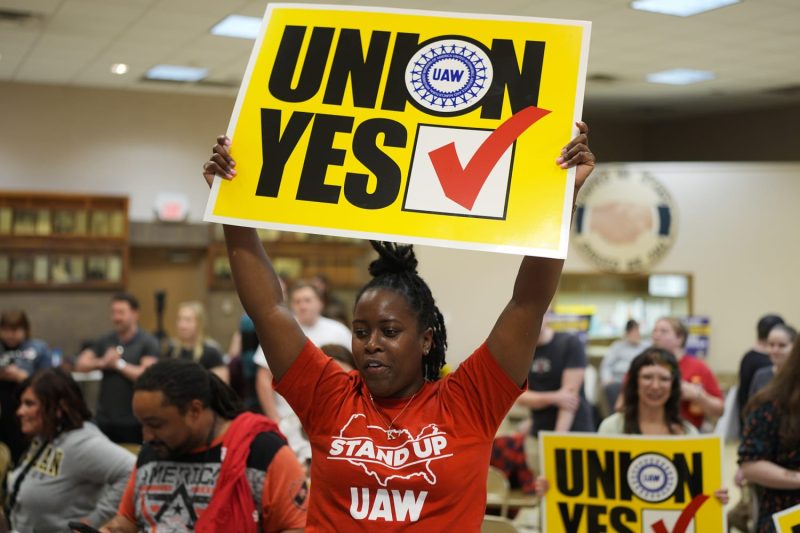The United Auto Workers (UAW) union is making considerable strides towards achieving a historic milestone at the Mercedes-Benz U.S. International (MBUSI) facility located in Vance, Alabama. The UAW has consistently expressed its intentions of unionizing employees at the plant, in what shapes up to be a monumental battle for the heart and soul of the American automobile industry.
Germany-based automaker, Mercedes-Benz, opened the MBUSI plant in 1993. Since its inception, the plant has served as a cornerstone of luxury automobile manufacture, producing popular Mercedes-Benz vehicles, including the GLE, GL, and the GLE Coupe. The Alabama facility is the only Mercedes-Benz production location in the U.S. and stands as a symbol of the German automaker’s operational success across international waters.
However, the facility has been subject to ongoing labor disputes, with UAW asserting its objective to unionize the plant’s employees. This endeavor by UAW is within the broader context of the union’s long-standing mission to secure the rights, wages, working conditions, and overall well-being of American autoworkers nationwide.
For years, UAW has paved its way into several American automobile factories, establishing union cadres that have shaped the U.S auto industry working landscape. The attempt to peg a similar victory at the Mercedes-Benz plant signifies UAW’s drive for dominance in foreign-owned vehicle plants in the South. Despite repeated efforts, UAW has grappled with resistance from both, the companies they sought to unionize, and sometimes even the workers who fear a strike could cost them their jobs.
Nevertheless, the UAW believes that the battle at the Mercedes-Benz plant isn’t just another unionization effort. It represents a broader struggle for the rights of American autoworkers against the backdrop of multinational corporations. It marks a key step towards establishing parity between domestic and international manufacturers while ensuring workers’ rights do not get compromised on the altar of globalization.
Despite this, the union faces an uphill battle. The anti-union sentiment is strong within the region and has been fueled by right-to-work laws that make it challenging for UAW to secure widespread support. Yet, the union remains undeterred, understanding the implications and importance of this fight.
The UAW views its bid at the Mercedes-Benz plant in Alabama as a critical turning point in its campaign for worker rights. A victory here could inspire collective bargaining efforts at other foreign-owned automobile factories nationwide, ushering in an era of enhanced workers’ rights across the automobile manufacturing sphere.
As the UAW continues to push for unionization, it seeks to make a statement: that worker’s rights, fair wages, and good working conditions are a non-negotiable part of American industry, even when it bears the logo of an international company. Therefore, the Mercedes-Benz plant in Alabama isn’t just a manufacturing facility. It’s a challenge, a symbol, and a frontier in the struggle for the manifestation of worker rights within the realm of foreign-owned manufacturers in America.
Regardless of the outcome, this battle will indubitably add a new facet to the discourse about workers’ rights, the role of unions, and the influence of transnational corporations in the American automobile manufacturing industry. It is a riveting saga, borne out of the classic lineaments of struggle, resistance, and the hope for a fairer world. The conclusion waits to be written on the pages of history.




